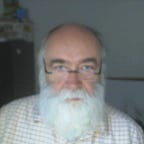I used to subscribe to Scientific American magazine. That was years ago. It has become so politically correct, I now consider the genre of SA to be “current events” more than science. I submit this article into evidence.
To be fair, the article is not scientific in nature. It is a human interest story with a science setting. But the lack of clear language, foggy reasoning and starkly propaganda nature is endemic of the state of the once-venerable magazine.
Lack of clear language
There are three significant reasons to define a word or term one uses in any non-fiction article.
- When the word or term is not in general use or
- The term is in general use but is vaguely defined or the writer has a more obscure meaning in mind.
The first term that calls out for definition is “science denier.” Yeah, I’ve heard the term before but I would be hard pressed to give an exact definition. If so pressed I would be tempted to give the most obvious estimate. A science denier is someone who denies science (duh)— meaning they dispute the efficacy of the scientific process or doubts that science can lead to any useful information.
In context, however, that is not the meaning intended in the SA article or any of the other places I’ve seen the term.
Though never defining the term, the article gives three examples. Science deniers are those people:
- who believe the moon landing was faked or
- who believe vaccines cause autism or
- who think that humans did not cause significant global climate change.
If anything, these examples make the definition of “science denier” even murkier.
The people in example 1 do not deny science in any way. They deny a certain historical event. They even use science to support their claim. Yes, they “do” science abysmally and are massively ignorant of any number of scientific principles, but just because they suck at science doesn’t mean they deny science.
The people in example 2 also don’t deny science. They present a textbook example of the post hoc ergo propter hoc fallacy or “correlation is not causation.” The MMR vaccine is administered to children beginning at 12 months of age. The symptoms of autism present mostly between 12 and 18 months of age. Therefore, the vaccine caused the autism. This is fallacious reasoning, but it is not anti science.
Foggy Reasoning
The third example is a good example itself of at least two logical fallacies. One is sometimes referred to a “package deal.” This is when we are presented with a list of items that generally fit a category — except for one. The purpose being to mis-categorize the one by hiding it among many true items. Such as, “The worst mass murderers in recent history include Lenin, Stalin, Mao, Pol Pot and Mother Theresa.” The purpose is to slip a false or unproven “fact” (AGW skeptics are bad at science) into the argument by placing it in a package of inarguable ideas (the moon landing skeptics and vaccine-autism advocates are bad at science).
The second fallacy is the good ol’ strawman — painting an erroneous picture of your opponent and attacking the picture instead of the actual opponent. While the rest of us know this as a logical fallacy and are taught not to use it, lawyers and politicians see this as a prime weapon and use it at every opportunity.
There are many people who question some or most of the conclusion of the Anthropogenic Global Warming (AGW) theory and there are many reasons they do so. Not many of them fit the “think that humans did not cause significant global climate change” description. Most have no problem with the idea that the world is warming. We are, after all, still climbing out of the last ice age and the Earth is still fairly cool. They just question the significance of the human contribution and how much devastation will be caused as the Earth returns to a more normal temperature.
These are not “science deniers.” They are merely skeptical of a specific scientific theory. Take the Big Bang theory. Widely accepted as the most probable origin of the universe, there are many highly respected scientists who are skeptical. This included, until his death in 2001, the eminent astrophysicist Sir Fred Hoyle who coined the term “Big Bang” as a derisive descriptor of the theory.
It seems highly improbable that the term “science denier” was ever applied to Fred Hoyle or any other “Big Bang deniers.”
Propaganda
In fact, if there is any example of anti-science to be found, it is the very article itself. The foundation of all scientific inquiry and discovery is…skepticism.
Whether it be the Big Bang theory, string theory, m-brane or whatever theory of anything you care to name, it is the skeptics who drive the search for new knowledge, new proofs to support or undermine the theory. And, to the scientists on both sides of any theory, the drive is for new knowledge. Whether it strengthens or weakens the theory is of little consequence.
The purpose of science is to advance knowledge, not advance any particular theory. So referring to everyone who disagrees with your theory as “science deniers” is about the most unscientific act anyone can perform. (However, it may just be the clear definition of “science denier” we’ve been looking for.)
So the purpose of the article is not to inform us how to deal with the “science deniers” in our family. That part of the article is just smug, passive-aggressive nonsense about how to treat people who may disagree with us.
The real purpose of the article is to advocate for one side of the SGW theory and to intimidate — if you disagree then you are a (dum-dum-DUM) science denier — readers into accepting the writer’s view.
Not what I like to see in a formerly prestigious publication.
